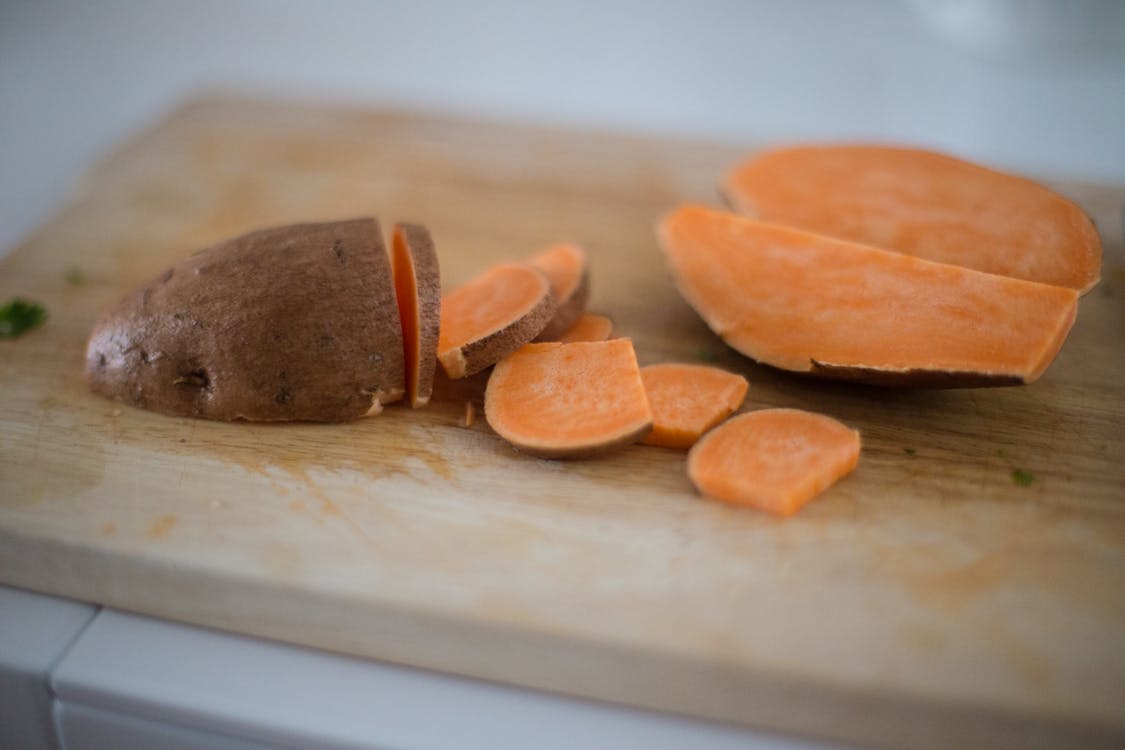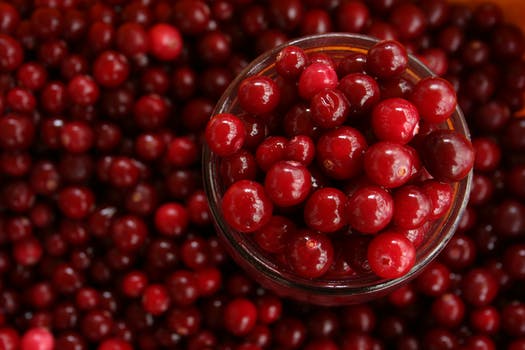Thanksgiving meals are a time when many of us (including myself) tend to over-indulge. The positive aspect of this meal that is often overlooked is that most of the food being served is seasonal. It not only tastes better to eat seasonal fruits and vegetables, it is significantly more nutritious! Food that takes weeks being outsourced from far away locations naturally loses phytonutrient content by the time it arrives and is treated with more preservatives. Eating fresh foods that are picked closer to their harvest date allows us to receive more nutrients and overall health benefits. According to Ayurveda, eating seasonally also provides us with the balancing qualities that we truly need during that specific time of year.
In Ayurveda, the traditional Vedic science of healing that originated in the Indian subcontinent, it is believed that food consumed soon after being harvested contains the most prana (life-force energy). This primordial energy is essential for proper digestion, immunity and overall physical, mental, emotional and spiritual vitality. Ayurveda teaches us that eating seasonally strengthens our connection to nature. Eating with the seasons keeps us in tune with the changing cycles of our planet and consuming food that is grown on soil closer to our homes intensifies our bond to the land itself. According to Ayurveda, fall is governed by Vata dosha. Air and ether (space) are the natural elements that classify the Vata constitution, causing it to possess cool, dry and light qualities. Ayurvedic healing is all about bringing ourselves into harmony with nature. Eating food that is warm, wet and comforting during Vata season helps to bring a balance to these opposing characteristics. Hot soups and casseroles made from fall and winter vegetables are ideal for this time of year. Most fruits harvested during the cool seasons also contain a higher amount of vitamin C, which is perfect for preventing colds and flus! Nature gives us what we need, exactly when we need it. To balance Vata energy, it is best to favor foods that taste sweet, salty and sour and to avoid astringent, bitter or pungent foods.
The three Ayurveda-approved Thanksgiving foods described below are currently in season throughout various parts of the United States. These three foods provide us with fresh nutrients (and energy) that our bodies, minds, and spirits are craving this fall season!
Seasonal Ayurveda-Approved Foods To Enjoy This Holiday Season
Pumpkin

These winter squashes contain a carotenoid known as beta-carotene. Carotenoids are naturally occurring plant pigments and beta-carotene is responsible for giving pumpkins their vibrant orange color. Once consumed in the body, beta-carotene is either converted into vitamin A or functions as an antioxidant. Studies have shown that beta-carotene and other vitamins and minerals present in pumpkins have powerful anti-inflammatory effects that aid the immune system and reduce the risk of cancer and cardiovascular disease. They contain healthy doses of vitamins A, C, E, magnesium and potassium. These winter squashes also perform wonders for your skin and eye health. Ayurveda considers pumpkin to be the best vegetable that is grown on the vine. Pumpkins pacify Vata dosha, and their naturally moist texture is balancing during the dry Vata season. Both pumpkin seeds and pulp are beneficial to your health, and it is always better to choose fresh pumpkin over canned. While preparing your upcoming Thanksgiving meal, instead of canned pumpkin try making an easy homemade pumpkin puree (your body will thank you). Remember–nothing is good in excess, so take it easy on the pumpkin pie!
Sweet Potato

Sweet potatoes are similar to pumpkins, in color and in some of their nutritional value. They are loaded with the orange pigment-causing beta-carotene, fiber, magnesium, potassium, vitamins A, C, and E. It is a fact that pumpkins contain less sugar and calories, however, sweet potatoes have significantly higher amounts of fiber, protein, vitamin A, potassium, and magnesium. This makes sweet potatoes a great alternative to regular white potatoes when it comes to weight loss and achieving digestive harmony. Pumpkins contain 9,875 IU of vitamin A per cup, and sweet potatoes have 18,869 IU of vitamin A per cup! This vitamin A-rich food is a miracle worker for amplifying the health of your eyes, skin, heart, brain, and immune system. The nutrients in sweet potatoes reduce inflammation in the body and help prevent long-term, chronic illnesses. In Ayurveda, the sweetness and earthiness of sweet potatoes make them one of the best foods for grounding Vata dosha. In addition to complimenting your Thanksgiving meal, try baking a sweet potato the next time you have a craving for junk foods like sweets or potato chips. The nourishing, naturally sweetened qualities of the sweet potato will serve as a better option for what your body is asking from you- which is to ground and stabilize. Cooked or stewed vegetables are best as most raw veggies will disturb Vata energy.
Cranberry

Cranberries contain a natural compound called proanthocyanidins (PACs). The fruit has been used for centuries to treat bladder and kidney ailments and studies have demonstrated that PACs help prevent infection-causing bacteria like E. coli from aggravating the urinary tract, making cranberries ideal for treating UTIs. This low-calorie snack improves immunity and is high in potassium, vitamins A, C, and K. The high antioxidant level in cranberries (ranked second after blueberries) make them beneficial for preventing cancer and other chronic diseases. When eaten in moderation, they can help reduce blood sugar and regulate glucose levels–which helps manage type 2 diabetes. Cranberries have also been said to be a healthy alternative to aspirin, because of their blood thinning effects on the body (avoid excessive cranberry intake if you use prescription blood thinners). Ayurvedic teachings express that it is best to consume fresh cranberries in moderation during Vata season, due to the fruit’s naturally astringent taste. This particular taste increases Vata energy and can potentially cause anxiety or lack of focus when eaten during this time of year. Dried fruits (including cranberries) are less nutritious and should be avoided in the cold seasons. Cooked fruits that are sweet, warm and wet are easier to digest and are balancing during Vata season- making cranberry sauce the perfect addition to your Thanksgiving meal! Again, it is always better to choose homemade over canned foods and to opt for a natural sweetener like maple syrup or raw honey if needed.
What are your favorite seasonal fruits and veggies?
Also by Ally: This Sa Ta Na Ma Kundalini Meditation Clears Your Subconscious For A Fresh Start
Related: How To Stay Slim This Fall Even With All The Pumpkin-y Foods #BeStrong
Fall Food Anxiety Is So Real. How To Indulge In Seasonal Dishes Without Worrying
Get more like this—Sign up for our daily inspirational newsletter for exclusive content!
__
Photo: Pexels
